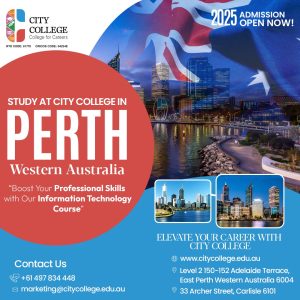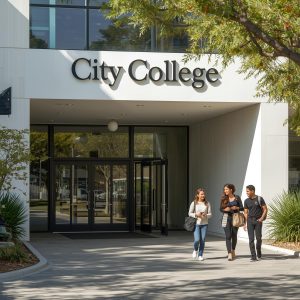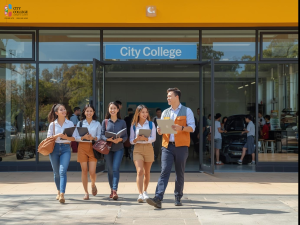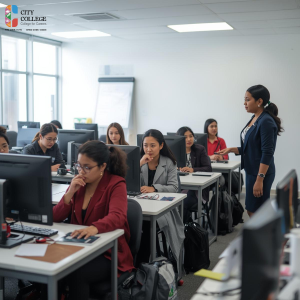Introduction
Maybe you want to move to Australia. You want both a good job and a pathway to stay (skilled migration). Trade qualifications—courses like automotive, carpentry, cookery—can help a lot. If you earn a trade certificate in Australia, especially in Perth or similar places, you might become eligible for skilled migration.
In this article, I show you exactly how trade qualifications work, what trade occupations are in demand, what you need, and how to use trades to apply for a visa. I want you to understand clearly, step by step, so you can make a good plan.
What Are Trade Qualifications?
Trade qualifications are vocational certificates or diplomas. These include courses like:
-
Certificate III in Automotive Technology
-
Certificate III in Carpentry
-
Certificate III in Commercial Cookery
-
Certificate IV in Kitchen Management
-
Other practical, hands-on trade qualifications
These courses teach you real skills. For example:
-
How to fix cars and diagnose mechanical issues
-
How to cook professionally
-
How to build or renovate houses
You spend much time doing practical work—not just theory.
Why Australia Needs Skilled Tradespeople
Australia has many jobs that need skilled trade workers. These trades are on the Skilled Occupation List (SOL). If your job is in that list, your trade qualification can help your visa.
Also, there is something called the Migration Skills Assessment (MSA) through Trades Recognition Australia (TRA). If you have experience and/or qualifications abroad, this helps you show that your skills match Australian standards.
So if you study a trade course in Australia or have your overseas skills assessed, you have a better chance to apply for visa pathways that value trades.
Popular Trade Occupations That Help Migration
Here are trade jobs that are currently in demand in Australia, which often appear in the Skilled Occupation List:
| Trade Job | Why It Helps Migration |
|---|---|
| Automotive Mechanic (general) | Australia needs car mechanics; good demand in many states. |
| Carpenter | Building and construction always has demand. |
| Cook / Commercial Cookery | Hospitality always needs skilled cooks, especially in cities. |
| Electrician / Automotive Electrician | High demand for electrical work. |
| Plumber, Diesel Mechanic, Small Engine Mechanic | Same, especially in rural or regional areas. |
If you pick one of these and get the right qualification, plus meet other requirements, your trade can give you migration points.
What Is a Skills Assessment and Why It Matters

If you want skilled migration, you must show your trade skills are valid. That’s where Skills Assessment comes in:
-
TRA (Trades Recognition Australia) or other bodies evaluate your trade skill level.
-
If you studied your trade outside Australia, these authorities check your certificates, work experience, and may ask for tests or practical proof.
-
Once you pass, you get a “skills assessment” outcome. This is required for many visas. Without it, your trade qualification may not count for migration.
So first, make sure your trade course or qualification is eligible for skills assessment.
Visa Pathways That Use Trade Qualifications
Here are visa types that trade-qualified people can use:
-
General Skilled Migration (GSM) visas: For people with trade or professional skills in demand. You need an occupation in the Skilled Occupation List.
-
Sometimes state or territory nomination visas: If your trade is in demand in a particular state, you get extra help and points.
-
Employer-sponsored visas: If an employer in Australia offers you a job in a trade, sometimes you get a visa with their sponsorship.
Meeting the criteria like health, English ability, skills assessment, sometimes age and work experience is necessary.
Steps You Must Take If You Choose This Path
If you plan to use trade qualifications to migrate, do these steps:
-
Choose a trade that is in demand (see Skilled Occupation List).
-
Get a trade qualification from a reliable provider (RTO) in Australia or overseas. If in Australia, make sure it is recognised.
-
Obtain a skills assessment for your trade. If overseas, collect certificates, work letters, proof of experience.
-
Improve English (IELTS or other accepted test). Many visas need good English scores.
-
Meet other visa requirements: age under certain limit, health checks, good character.
-
Apply for visa or nomination once you have everything.
If you do each step well, your trade qualification can open visa options.
Case Example: Automotive Trade + Migration
Let me explain using automotive trade, for example:
-
You complete Certificate III in Automotive Technology in Perth.
-
You then do Certificate IV in Automotive Mechanical Diagnosis. These give you higher skills.
-
You then apply for TRA skills assessment to show your qualifications and experience meet Australian standard.
-
You take an English test.
-
If your mechanical trade is on the Skilled Occupation List, you apply for General Skilled Migration or state nomination.
This route gives you more points, more chance to stay and work legally in Australia.
Things to Check Before You Begin
-
Is trade job on current Skilled Occupation List? The list changes from time to time. Always check latest.
-
Is the qualification recognised? Make sure training provider is RTO or approved.
-
What’s the cost vs benefit? Training cost, skills assessment cost, visa fees, living cost—all must be considered.
-
English requirement is important. Low English score can make visa hard even if trade qualification is good.
-
Keep records of your work experience: letters, photos, tasks you did. These help with skills assessment.
Conclusion
Trade qualifications are a strong path for international students who want skilled migration in Australia. If you pick a trade that’s needed, get a recognised qualification, pass the skills assessment, and meet visa rules, you improve your chances.
It takes effort, but if you plan well, trades like mechanic, cook, carpenter can give you both a good job AND a migration pathway.
FAQs
What trades are accepted for migration in Australia?
Trades like Automotive Mechanic, Carpenter, Cook, Electrician, Plumber often appear on the Skilled Occupation List. But it depends on state and current government policy. Always check the latest SOL.
What is TRA and do I need its assessment?
TRA = Trades Recognition Australia. Yes, if you want your trade to count for skilled migration, you often need skills assessment from TRA or another recognised authority.
How many years of experience do I need?
It depends. Some trades ask for several years of work experience, especially if you studied your trade overseas. You must prove your skills and past work.
Can I study trade first then migrate?
Yes. Many people study trade qualification in Australia, then use that to apply for skilled visas later. Studying in Australia gives you local recognition, which helps in skills assessment.
Does English proficiency matter?
Yes, a lot. Good English test score (like IELTS or equivalent) is needed for many skill visas and for skills assessment. Even if trade skills are good, weak English can block your visa.




